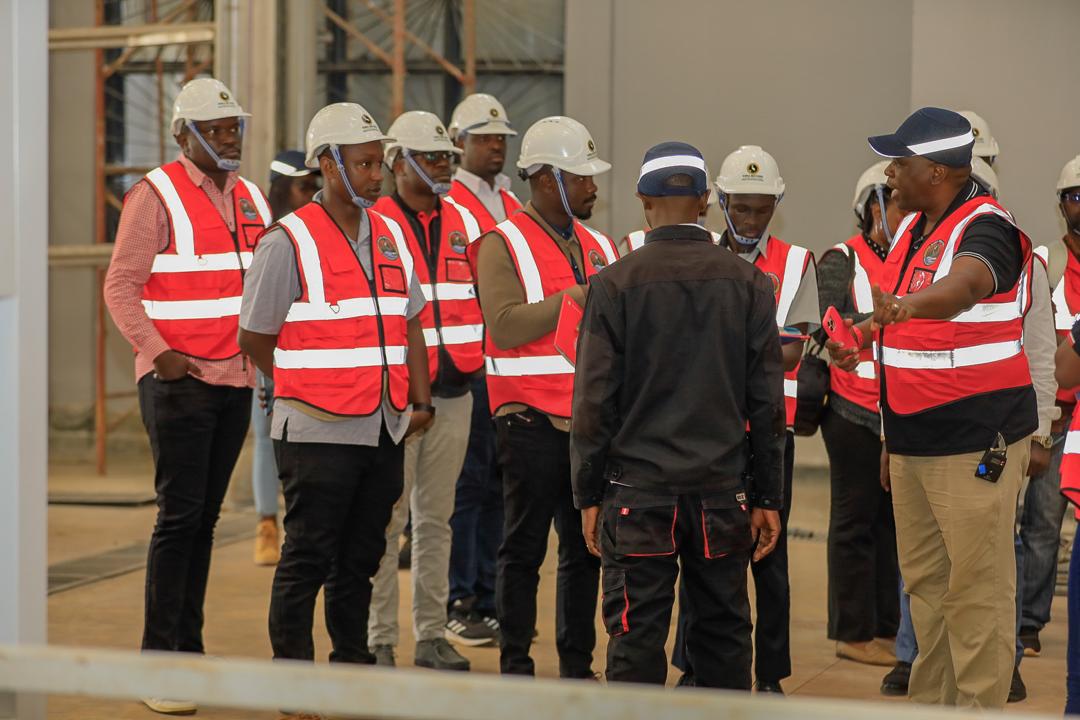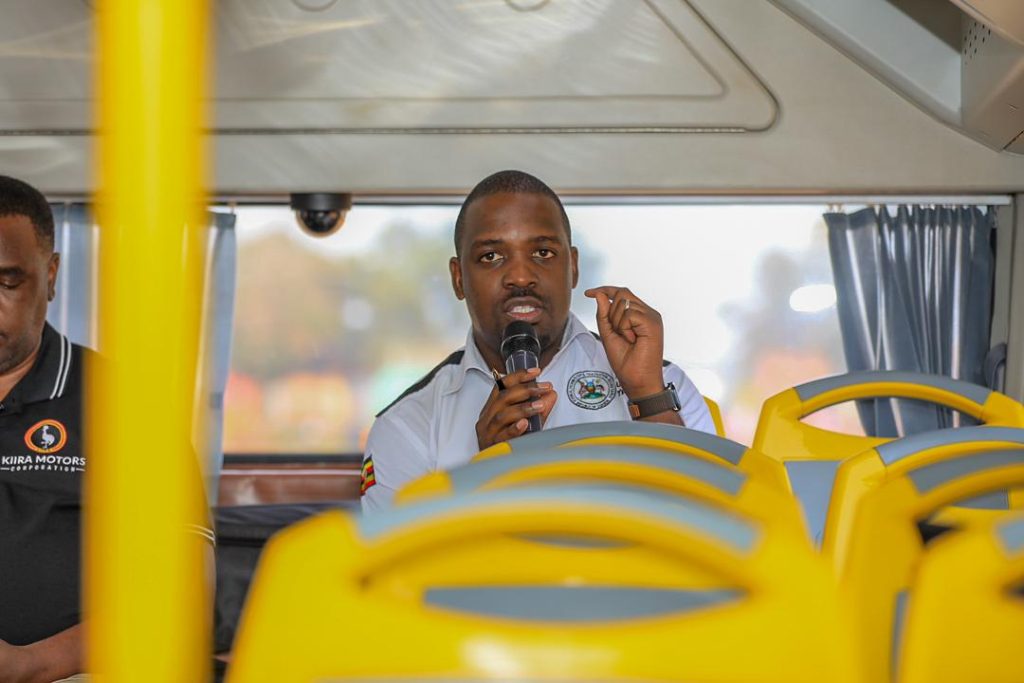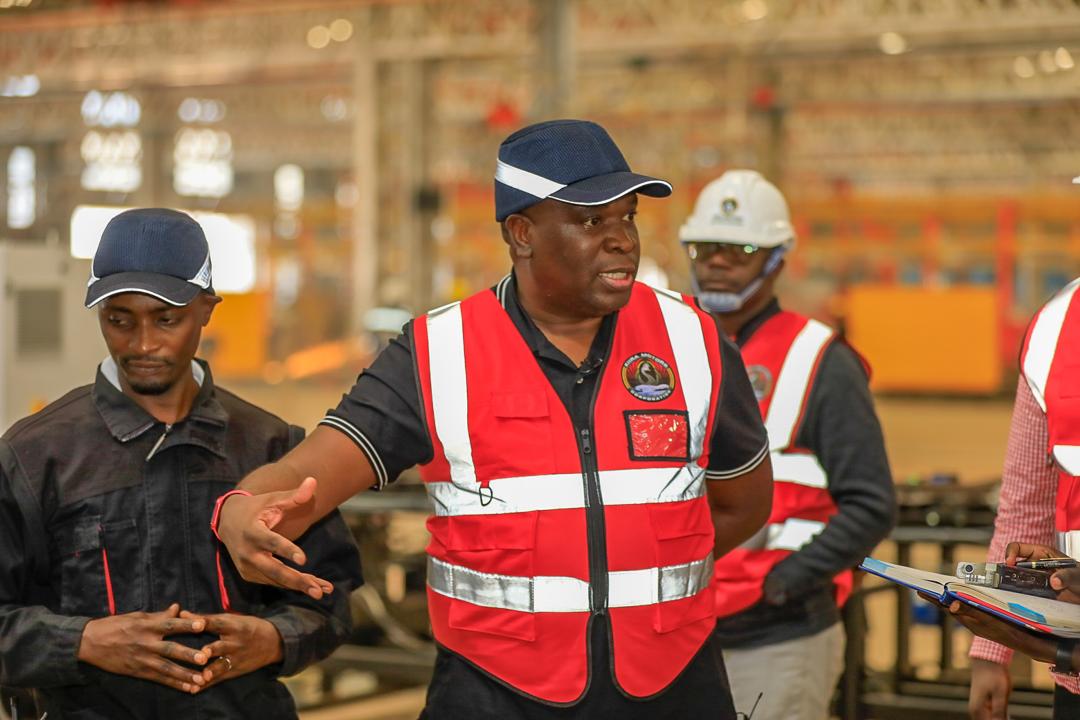PRESS STATEMENT
Kiira Motors Announces Uganda’s First e-Mobility Expo
31st July 2024 – Kiira Motors Corporation (KMC) has today announced Uganda’s first e-Mobility Expo and Kiira Vehicle Plant (KVP Open House– which is taking place on Friday 16th August 2024 at the Kiira Vehicle Plant in Jinja from 12:00 pm to 10:00 pm.
Held under the theme The Future is Green; The Future is Now, the first-of-its-kind event is designed to explore, showcase, and encourage the adoption of electric mobility solutions in Uganda.
The Kiira Vehicle Open House and e-Mobility Expo 2024 will gather over 200 industry leaders, potential customer, suppliers, policymakers, investors, innovators, and the public to discuss Uganda’s readiness to adapt to the e-mobility revolution – all towards positioning the nation as a net source of e-mobility solutions in Africa.
During a media roundtable held on the all-electric city bus the Kayoola EVS Model 2024, Mr. Paul Isaac Musasizi, the Chief Executive Officer of Kiira Motors Corporation, said, “This expo marks a significant milestone in Uganda’s journey towards embracing electric mobility which offers immense potential for reducing the nation’s carbon footprint and creating new economic opportunities while fostering innovation. We are proud to host this inaugural event and showcase the innovations that will shape the future of mobility in our country.”

The expo will feature a series of fireside conversations drawing content experts in the fields of e-financing, carbon trading, energy and e-mobility infrastructure development, and more.
Uganda in the recently concluded census recorded a population of 45.9 million people. Thanks to increased urbanisation, the mobility needs of this population have resulted in vehicular emissions which are the leading cause of Kampala’s increased air pollution readings from a dangerous annual averaging at 39.5 micrograms of pollutant matter in each cubic metre in 2019 increasing to 41 micrograms per cubic metre in 2024. This is eight times higher than the 5 micrograms per cubic meter that the World Health Organization defines as the safe limit for air pollution- negatively affecting the health and well-being of citizens epically in the urban centres making the case for e-mobility solutions which also serve to improve the national energy equation considering that with fossil fuels today we import both the energy ~ USD 2Bn annually and the vehicles ~ USD 730 M annually.
Allan Muhumuza, the Team Leader of the Mobility Bureau in the Secretariat of Science and Technology in the Office of the President, said, “With a vision to see Uganda transition to e-mobility in public mass transport, motorcycles, and passenger vehicles, the Government is implementing the National e-Mobility Strategy – which looks to build an efficient and self-sustaining ecosystem. This event is a bold step towards further bringing together all the relevant players towards seeing this vision come to life to combat climate change and enhance the quality of life for our citizens.”

The expo will draw exhibitors with a wide range of products and services including Innovex, Nexus Green, Green Hub, Karaa, KaCyber Securities Ltd., GoGo and many more.
The Open House provides an opportunity to participants tour the state-of-the-art Kiira Vehicle Plant. The Kiira Vehicle Plant has an installed capacity of 2,500 vehicles per annum. This will be tooled up to 5,000 vehicles per annum in the medium term positioning Uganda as a net source of Mobility Solutions in Africa.
ENDS










